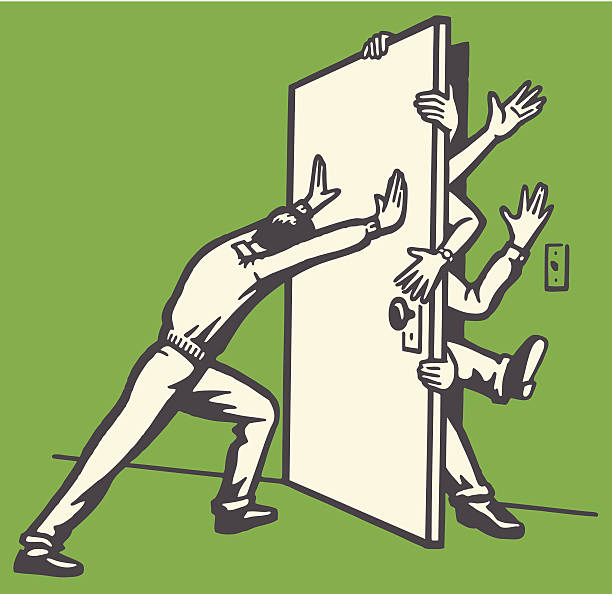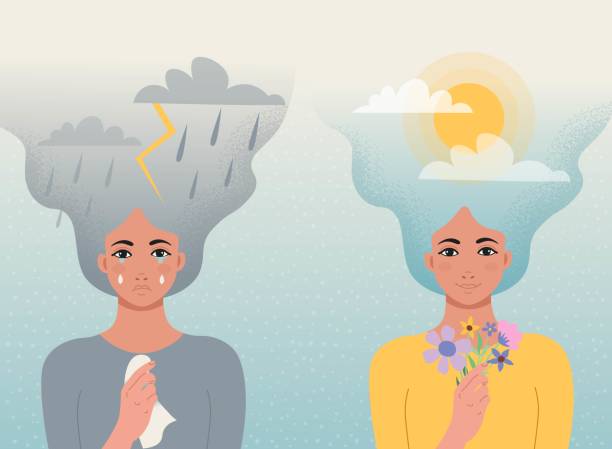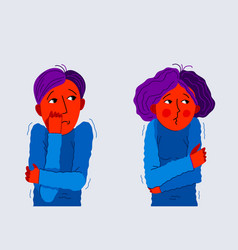5 Things a Toxic Relationship Does to Your Mental Health

Have you ever been around someone who leaves you feeling mentally drained every time you interact with them? Someone who sucks out your energy, making you feel exhausted and emotionally insecure? Toxicity can occur in any relationship, whether that may be parental, familial, work-based, or within couples. This type of behavior usually includes some sort of manipulation or abuse of power, which if continues, can leave you with some serious mental health effects. It is important to be aware of what such exploitative relationships can do to you, so that you know to make the best choices for yourself. Here are six effects that a toxic relationship can have on your mental health.
Before we continue, keep in mind that this article is purely for educational purposes, and is not to be taken as a substitute for professional advice or assistance. Helpful resources to contact regarding help for more concerning circumstances can be found below this reading.

1. Your Insecurity Consumes You
Enduring a seemingly endless time of mistreatment and indifference from someone is bound to lead to some insecurity issues. According to an article by Forbes, a toxic relationship can “make you feel insecure or bad about yourself, leave you feeling drained and unhappy, place pressure on you to change something about yourself or may even be physically and emotionally harmful.” People who come out of toxic relationships often feel empty inside, having lost themselves to fighting a long battle with this other person, drained and left as a shell of the person they once used to be.

2. You Experience Low Self-Esteem
Along with the insecurity comes low self-esteem. But to understand why victims of a toxic relationship tend to deal with feelings of being unworthy, we must understand what they go through in a toxic relationship. Dr. Sherri Bourg Carter, psychologist and author who specializes in the area of stress and female health, explains how toxic relationships are characterized by the “abuse of power and control, demandingness, selfishness, self-centeredness, criticism, negativity, dishonesty, distrust, demeaning comments and attitudes, and jealousy.” And that’s just to name a few of the abuser’s motives. But by seeing all these destructive behaviors that happen within the inner works of a toxic relationship, it is much easier to empathize with the victims with their deflated self-appreciation. Being put down so many times can severely affect your self-confidence, increasing self-doubt, and making you feel like you were never enough- which was just the false narrative once fed to you by someone who felt the need to target you.

3. You Withdraw From/Block Out Others
When you’re traumatized once, your brain will rewire itself to avoid experiencing toxicity again. This is why most victims of a toxic relationship tend to withdraw from interacting with their friends and family- if it isn’t due to the abuser manipulating them into doing so. According to Dr. Alexandra Gens, a psychiatrist at Unity Point Health, “Toxic intimate partner relationships can create social isolation from important social support networks furthering the risk of worsening or developing mental health issues.” So although you may find it easier and more comfortable to avoid interacting with others, or even discussing your trauma, self-isolation shows to be more harmful for your mental health in the long run.

4. You Become Pessimistic
Experiencing all of these negative emotions in a relationship can really take a toll on your perspective of your life as a whole. Major life events and taxing circumstances can be a significant contributor to personality changes. As we go through life, we pick up on various learnings along the way, growing and changing for the better. But in some cases, this change can be more of a hindrance. According to an article by a psychology undergraduate at Duquesne University, Emily Shemanski, which summarizes a personality study published in the Journal of Research in Personality, “Long term stress involves the sympathetic nervous system [and] the innate immune system… The intensity of the response to stress is dependent upon how a person perceives the stressor; if the stressor is seen as highly threatening, then the response will be strong, and vice versa.” So someone who goes through a toxic relationship which leaves behind internal scars is more likely to have a negative view towards developing any relationship in general due to their negative personal experience.

5. You Are Surprised By Healthy Relationships
Once you go through some personal growth and healing after coming out of a toxic relationship, it is likely that you will be surprised when you run into the good people in your life. You most likely will start to question sincerity, and will find any sign of genuine loyalty and respect to be deceitful. This comes from your once attacked inner ego defending itself, rightfully so. However, it is important to remember that the one or few people that have displayed toxicity towards you do not represent the whole world, so it’s important to give new relationships, people, and interactions a chance. You just have to use your learnings from your negative experiences to stay extra cautious and careful.

We hope you found this reading helpful. If you feel that you are able to identify these signs in any relationship of yours, please do what is needed in order to look after yourself. If the safety of you or someone you know is at risk, we advise you to reach out for professional help. Resources for help regarding violence or abuse include:
- Crisis Text Line: https://www.crisistextline.org/
- National Domestic Violence Hotline: https://www.thehotline.org/
- National Coalition Against Domestic Violence: https://ncadv.org/
Stay strong!
References:
- Carter, S. B., Psy.D. (2011, August 7). The Hidden Health Hazards of Toxic Relationships (M. Huston, Ed.). Psychology Today. Retrieved July 22, 2021, from http://ychologytoday.com/us/blog/high-octane-women/201108/the-hidden-health-hazards-toxic-relationships
- Cole, W., IFMCP, DNM, DC. (n.d.). The Science Behind How Toxic Relationships Affect Your Mental Health. https://drwillcole.com/mindful-living/the-science-behind-how-toxic-relationships-affect-your-health. Retrieved July 22, 2021, from https://drwillcole.com/mindful-living/the-science-behind-how-toxic-relationships-affect-your-health
- Ending Toxic Relationships: A Resolution to Mental Self-Care. (2020, February 5). UnityPoint Health- Unity Place. Retrieved July 22, 2021, from https://www.unitypoint.org/peoria/unityplace-blog-article.aspx?id=3401d6f7-4b39-426d-adb9-b38f60d63793
- Research Shows Bad Relationships Can Also Mean Bad Health. (2018, May 3). Forbes. Retrieved July 22, 2021, from https://www.forbes.com/sites/quora/2018/05/03/research-shows-bad-relationships-can-also-mean-bad-health/?sh=1d55e5351d5e
5. Shemanski, E. (2016, December 22). Study finds that long term stress and pessimism are linked. PsyPost. Retrieved July 22, 2021, from https://www.psypost.org/2016/12/study-finds-long-term-stress-pessimism-linked-46669Toxic relationships. (n.d.). Mental Health Foundation. Retrieved July 22, 2021, from https://www.mentalhealth.org.uk/publications/guide-investing-your-relationships/toxic



Responses